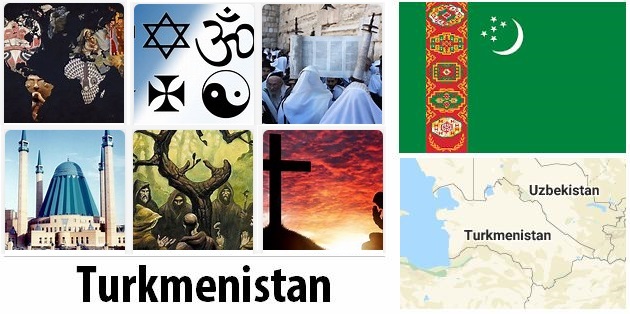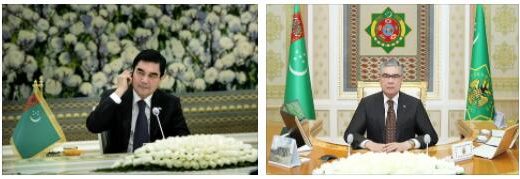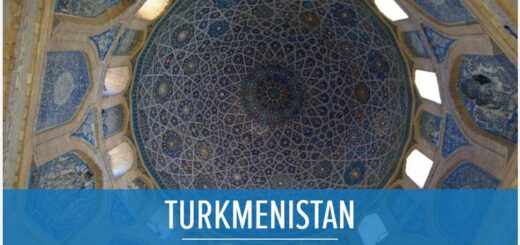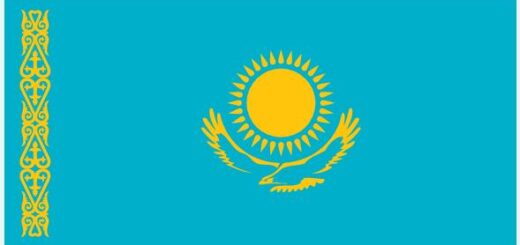Turkmenistan Religion
The majority of Turkmenistan residents are Sunni Muslims, but there is also a small Shiite Muslim minority. Sunni Islam often has features of Sufism in the country (Islamic mysticism). Islam has long been mixed with the clan’s own traditions and even today there are elements of shamanism, including spirit spell.
During the Soviet era (c. 1920–1991), Turkmenistan was one of the Union republics where the most atheist propaganda was conducted. On the surface, Islam died out, the Qur’an was banned and mosques demolished. But Islam lived on in the hidden, and in 1987 the authorities revealed that underground Islamic movements had been discovered in the country.
The years surrounding the dissolution of the Soviet Union in 1991 saw Islam rise in Turkmenistan. The number of pilgrims who piled on to Mecca was tripled in 1987-1992, and with the support of, among others, Saudi Arabia, new mosques were built. With Turkish support, an Islamic theological education was opened in 1996.
The Turkmen regime has not allowed Islam to gain influence over politics. The Constitution states that Turkmenistan should be a secular state with religious freedom, but in practice freedom is severely limited. All religious congregations must be registered with the authorities. Previously, only Sunni Muslim and Russian Orthodox communities were allowed, but since 2004 other groups have been allowed to register. Protestants are often viewed with suspicion, but traditionally Turkmen society is tolerant, and the reasons for the regime’s control over religion are more political than religious. There is a fear that religious freedom can lead to political dissent.
It has happened that unauthorized communities have been persecuted by the authorities. Religious venues have been demolished and hundreds of Islamic teachers and ministers from other countries, mainly Iran, have been expelled. Registered communities have also been harassed. Islamic fundamentalism has not had any success in Turkmenistan.
- Countryaah: Population statistics for 2020 and next 30 years in Turkmenistan, covering demographics, population graphs, and official data for growth rates, population density, and death rates.
2017
November
An agreement is signed on the Lapis Lazuli corridor
November 15
Turkmenistan, together with Afghanistan, Azerbaijan, Georgia and Turkey, sign an agreement in Ashgabat (Aşgabat) to build a transport and transit route running from Afghanistan across Central Asia to Istanbul in Turkey. The so-called Lapis Lazuli corridor shall consist of both highways and railways. The goal is for trade to increase in the region by removing practical barriers and protective duties. Trade exchanges between Afghanistan and Turkey increased by 20 percent in 2016 and are now at $ 513 million per year. The agreement has been preceded by five years of negotiations.
October
The currency loses in value
October 23
The deep economic crisis erodes the value of the Turkmen currency. Officially, the currency, called, has been valued at 3.5 for a US dollar since 2015. In the black market, which gives a better picture of the currency’s real purchasing power, you have for some time received 7.50 for a dollar, but now it dropped to 9 for a dollar. The crisis, as a result of falling prices for Turkmen exports such as oil and gas, also manifests itself in a shortage of food and other groceries in stores.
Charges are introduced on electricity, water and gas
October 10
President Berdimuhamedow signs a law that residents must start paying for electricity, water and gas. He says the subsidies should be phased out gradually.
The president promises mass investments
October 9
President Berdimuhamedow promises that the state will invest the equivalent of € 38 billion (at the official rate; about half as much as the black exchange rate is better regarded as the true value of the currency) to revitalize the country’s oil and gas industries. Turkmenistan’s economy is in deep crisis since world market prices for its export products have fallen and Russia stopped buying Turkmen oil and gas in early 2016. Today Turkmenistan is heavily dependent on sales to China.
September
Accusations of evictions and house demolitions
September 4th
Two human rights organizations accuse the Turkmen authorities of evicting thousands of people from their homes in the capital Ashgabat (Aşgabat) ahead of the major Asian sports competitions to be held there later in September. The Vienna-based Turkmen Human Rights Initiative and New York-based Human Rights Watch write that housing has been demolished without the owners having the opportunity to appeal the decision in court or receive reasonable financial compensation. The authorities’ intention with the demolitions is said to be to “standardize the city’s appearance”. In the past, the authorities have banned alcohol sales in the capital while the competitions are ongoing, limiting the ability of residents in the provinces to travel to Ashgabat and trying to clear the city’s streets from homeless dogs and begging children.
June
New authority will fight corruption
June 2
A new authority is set up that has the task of combating widespread corruption, state media reports. It will be headed by a former director of the customs authority.
May
The prosecutor is kicked
May 4th
President Berdimuhamedow dismisses State Prosecutor Amanmyrat Khallyiev for not doing enough to fight corruption in the police and the judiciary. Interior Minister Isgender Mulikov gets a formal reprimand and several senior officials at both the Prosecutor’s Office and the Interior Ministry are dismissed. All decisions are immediately approved by Parliament.
February
Expected grand victory for the president
February 12
As expected, Gurbanguly Berdimuhamedow wins big in the presidential election. He is re-elected for another seven years in power with almost 98 percent of the vote. His eight “counter-candidates” are all nominated by the government.




